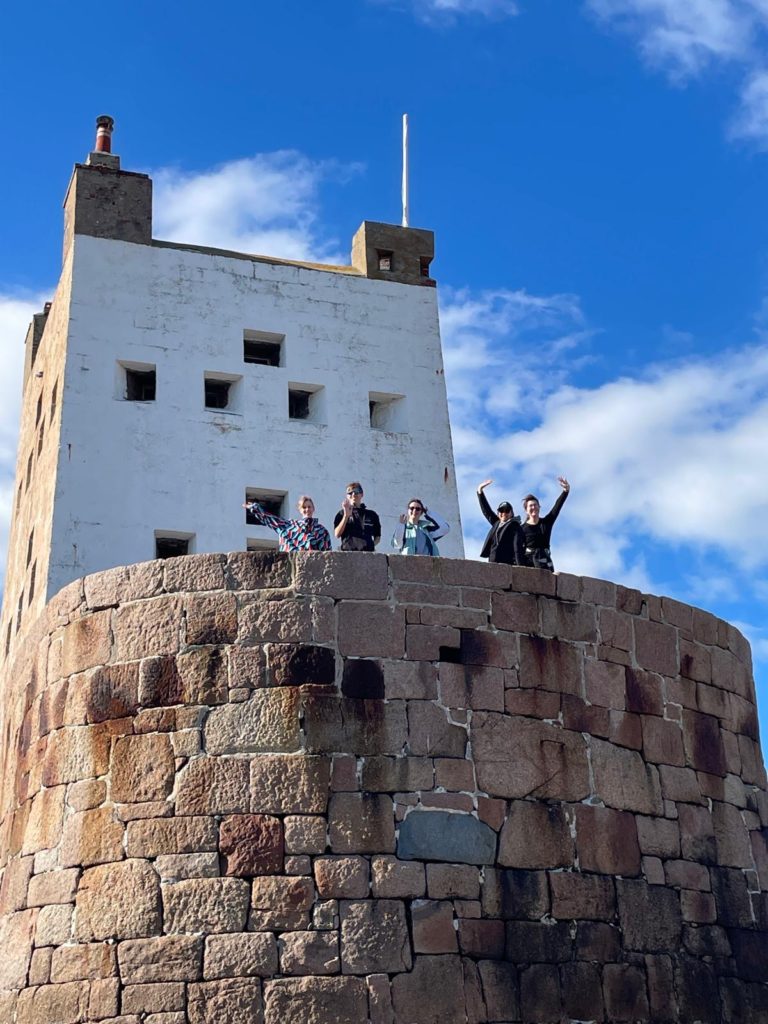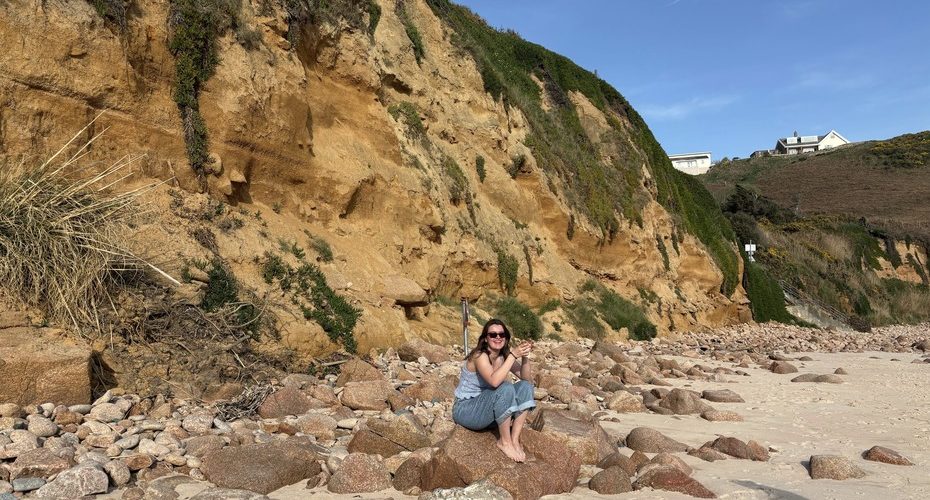Hi! I’m Abi, a postgraduate student studying an MSc in Island Biodiversity and Conservation. I’m originally from Kettering in the UK, but I’m now based in Jersey, Channel Islands. Unlike most Exeter students, I don’t study at Streatham, St Luke’s or Penryn Campus: instead, my course is delivered on the island but accredited by the University of Exeter. Even though I don’t study on one of the three main campuses, Exeter has still played a role in my academic journey, and I wanted to share why I chose this path and what I love about it!
Choosing a Masters programme can be challenging, especially when looking for something as niche as island biodiversity. For me, Exeter stood out for several key reasons:
Exeter contributes to wider society:
One of the main reasons I chose this MSc was its focus on real-world conservation challenges specific to island ecosystems. The modules cover a wide range of topics, from legislation to ecological monitoring. Like many postgraduate environmental courses at Exeter, the course also includes a fieldtrip to see what we are learning about in action. This is something that I found was particularly emphasised by the University of Exeter – applying what we were studying rather than just learning about theories. My course runs a module in Tenerife where we get to see the conservation in action. I have just returned from this and it was an amazing trip where we got to see what we had been learning about in real time.
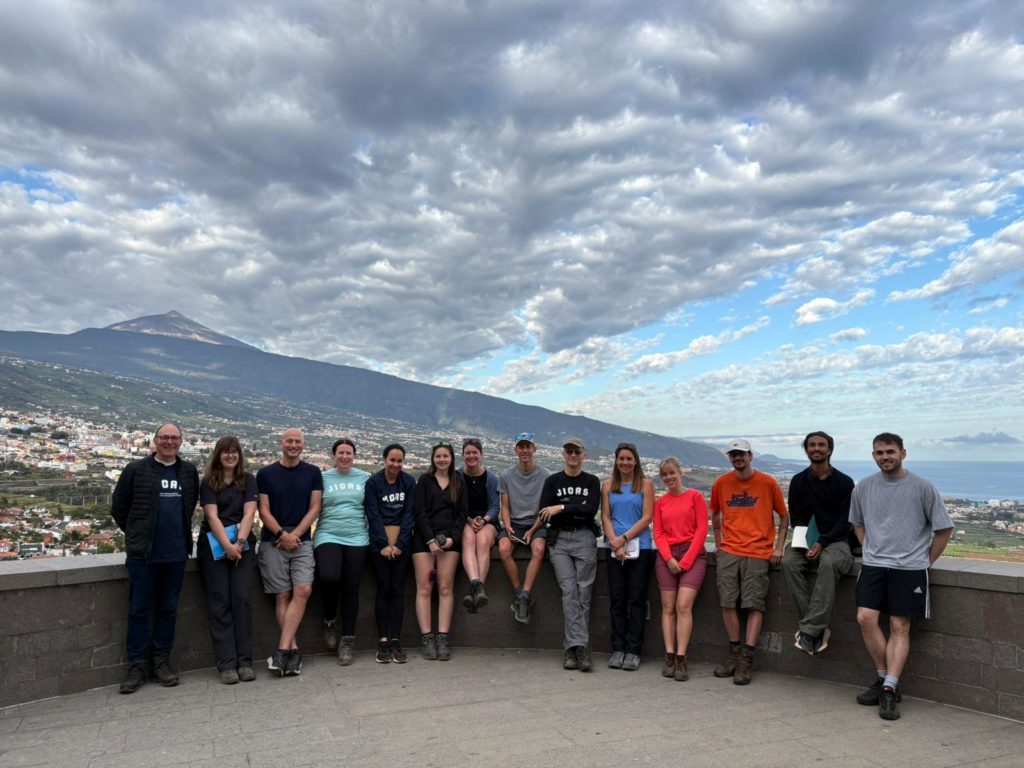
Another thing that really appealed to me about my course was the opportunity to work on local conservation projects and gain direct access to expert lecturers and researchers who specialise in island ecosystems.
Exeter’s reputation as a leader in environmental and ecological sciences gave me confidence that this programme would provide both me with both a highly credible degree and valuable career connections. For example, we were recently visited by Lee Durrell who spoke to us about her work at the Durrell Wildlife Conservation Trust!
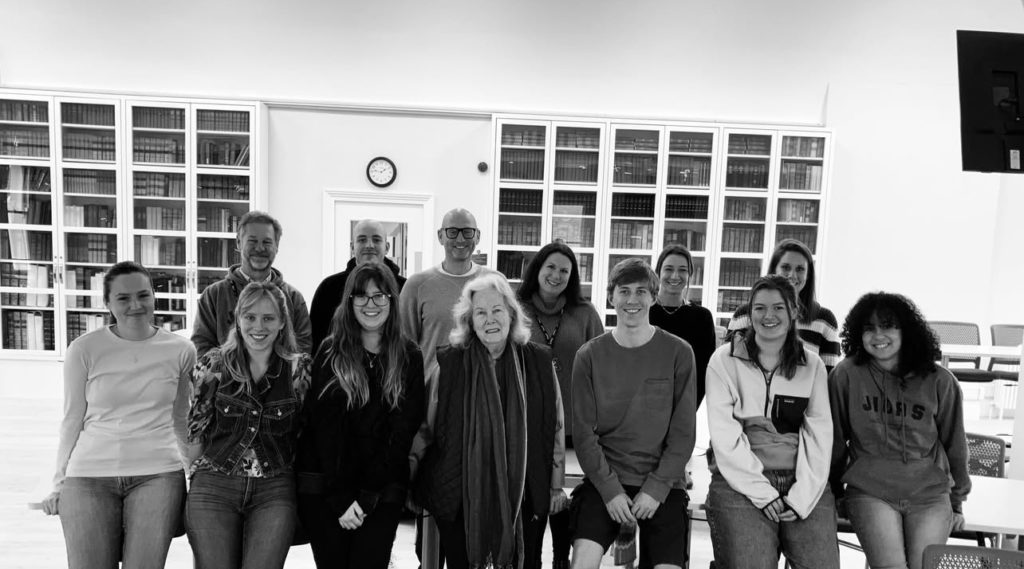
One thing that helped guide my decision to choose Exeter is its place in the league tables: it’s ranked 4th in the world for ecology! (Shanghai Rankings of Academic Subjects). Exeter isn’t just an academic institution but a place that actively influences the world around it. While some universities can feel like isolated academic bubbles, Exeter is deeply engaged with wider society. From its research in climate science and conservation to its role in educating future leaders, Exeter is making a difference. The University’s work impacts everything from global conservation efforts to local community initiatives, and I wanted to be part of an institution that takes its responsibility to the planet and society seriously. This is particularly evident in its commitment to sustainability, with Exeter consistently ranking among the top universities in the world for environmental action. Through its research partnerships, student initiatives, and policy engagement, the University is helping to drive real change. As someone passionate about biodiversity and conservation, it was important for me to study somewhere that is not only teaching these subjects but also actively working to protect the natural world.

The research opportunities Exeter provides are also a big advantage. Even if you are not physically on one of their main campuses, there are opportunities to collaborate with researchers on real-world conservation projects. Students on my course have been involved in projects such as investigating Jersey’s blue carbon storage capacity and monitoring the Portlet Bay no-take zone. Exeter’s commitment to sustainability also means there are funding options and grants available for students passionate about making an impact. For example, the Study Abroad Green Award: https://www.exeter.ac.uk/study/studyabroad/outbound/fees/scholarships/ , and the Green Futures Scholarship: https://www.exeter.ac.uk/study/funding/postgraduatetaught/scholarships/.
A remote programme with strong University support:
Although I don’t spend any time in Exeter, I still feel connected to the University through its resources, lecturers, and academic support, including access to Exeter’s extensive library and research tools.
I am also able to take advantage of Exeter’s virtual employability and personal development sessions. Examples of these sessions include:
- Career guidance and CV workshops, including how to write a cover letter.
- Guest lectures from industry professionals that are really useful for real-world insights!
- Networking workshops that are great for learning how to grow your own network of contacts.
These sessions have been so useful in helping me develop key skills that will be really important in my career after graduation, and for helping me stay informed about job opportunities. The University’s careers service is a great place to expand your job search; I’ve seen some jobs through Handshake (Exeter’s careers service portal) that I didn’t even know existed! As a remote student, they also help me to feel like I am part of the wider Exeter student community, as I maintain access to the same high quality career support as campus-based students.
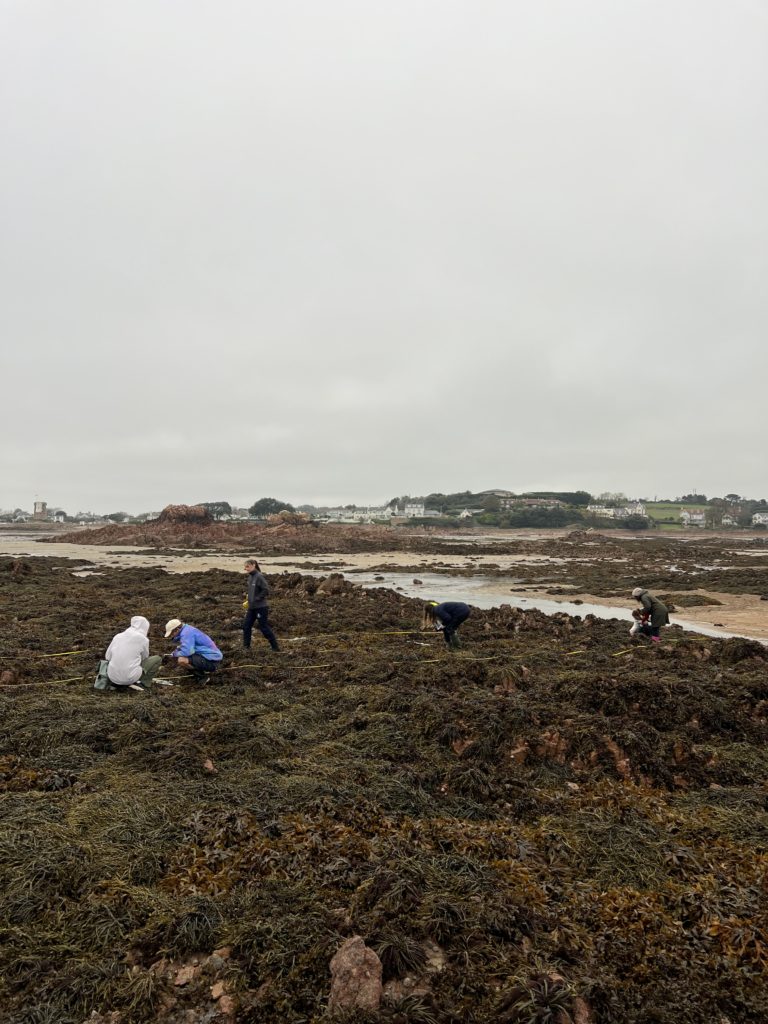
Strong career prospects and conservation networks:
One of my biggest considerations when choosing a Masters programme was what job opportunities it could lead to post-graduation. With Exeter’s strong links to conservation organisations, NGOs and research institutions, I knew this MSc could open doors to exciting opportunities for me, for example I’ve had the chance to work with local conservation groups in the Channel Islands (such as Jersey Marine Conservation) and through this gain practical skills that are highly valued in the environmental sector.
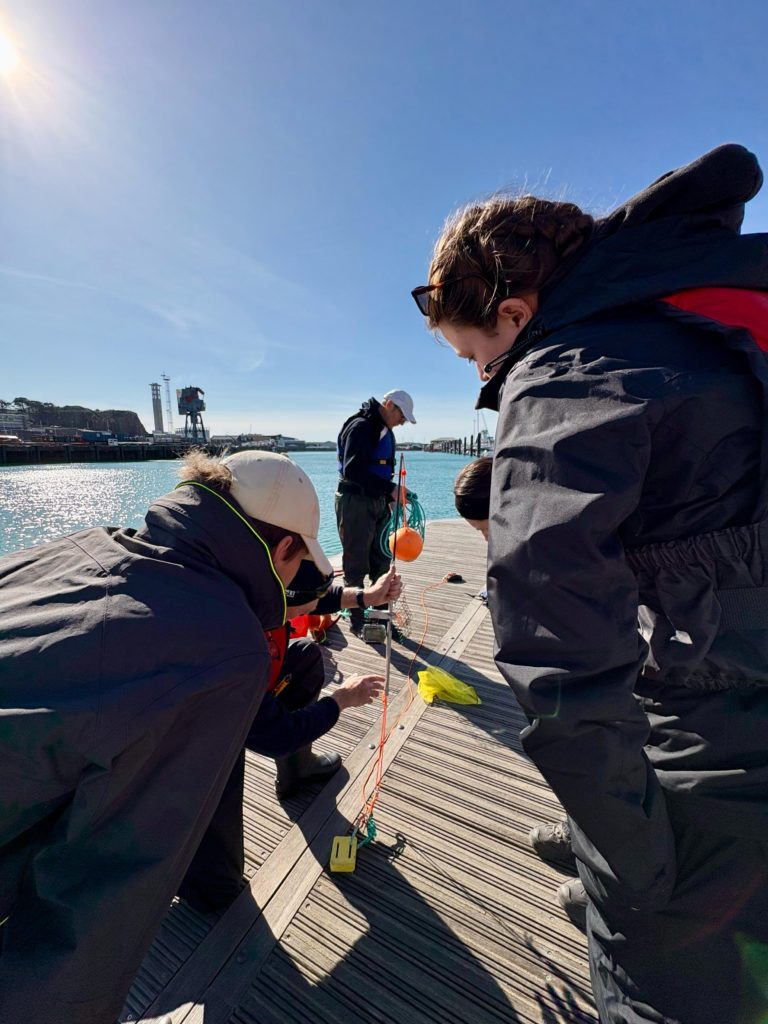
My work in Jersey has included research on marine ecology, including running transects in intertidal zones and heading out on the boats to deploy BRUVS (baited underwater cameras for researching/monitoring marine habitats). Having the opportunity to apply what I’m learning directly to local conservation efforts has made my studies even more meaningful.
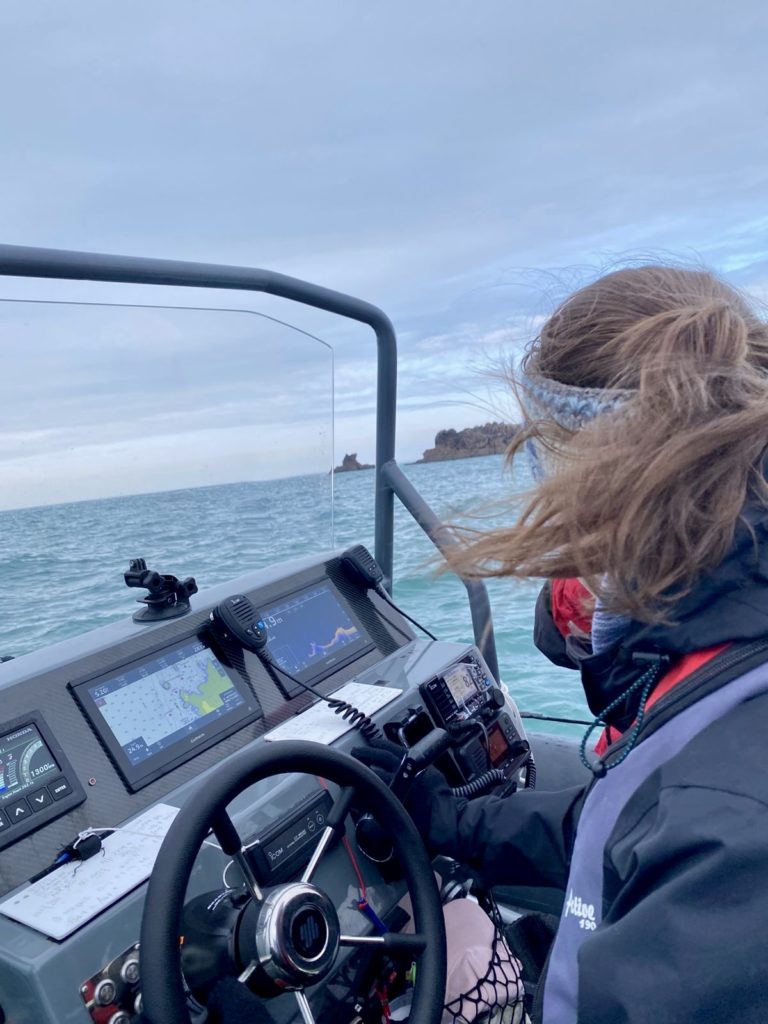
Additionally, Exeter offers incredible extracurricular opportunities that enhance employability prospects after graduation. One such programme I found particularly useful was the Green Consultants course (https://www.exeter.ac.uk/students/careers/employability-schemes/greenconsultants/). This initiative provides students with training and practical experience in sustainability consultancy, equipping them with skills that are valuable across multiple industries. Even though my MSc is remote, I was able to take advantage of this opportunity provided by the University, which has strengthened my knowledge of sustainability beyond biodiversity conservation.

The application process and tips:
Applying for the MSc was a smooth experience. For anyone thinking about postgraduate study at Exeter, I’d recommend keeping these tips in mind:
- Engage with the programme coordinators: Postgraduate courses generally have a much smaller cohort than undergraduate programmes, making it easier to reach out to and engage with staff and lecturers before you apply. When I was applying for courses at Exeter (I considered multiple), I found that all of the programme coordinators were quick to respond and eager to answer any questions I had. Use this to learn more about the structure and content of the course and how it fits your career goals! You can find the name for the Programme Director and a link to their contact details on the web page for any Masters course you are interested in.
- Take advantage of Exeter’s resources: Even if you end up on a course that isn’t based in Exeter, you have access to the academic and pastoral support that the University provides. Use it!
- Consider Exeter’s sustainability and career initiatives: Programmes like Green Consultants or career workshops can provide valuable skills and connections.
Studying for my MSc in Island Biodiversity and Conservation, accredited by the University of Exeter, has been an incredible experience so far. It allows me to gain world-class education while living on the beautiful island of Jersey and actively contributing to conservation efforts in my local environment. One of the biggest takeaways from my time with Exeter is how much the University values applied learning and developing real-world skills alongside academic study.
If you’re considering studying a specialised programme like this, I’d highly recommend exploring Exeter’s options. The University provides so much more than just academic knowledge: it also prepares you well for a meaningful career after you graduate.
